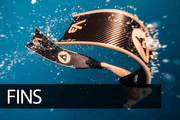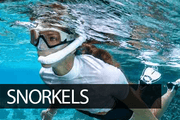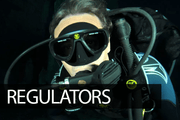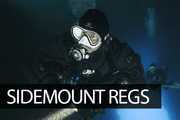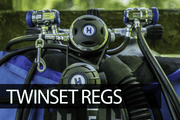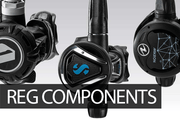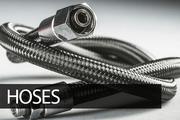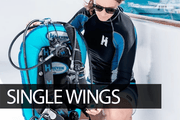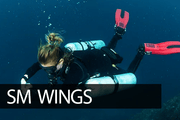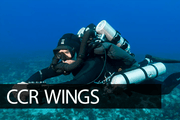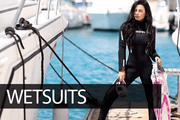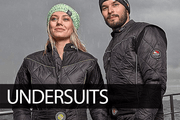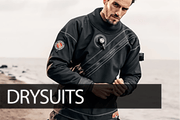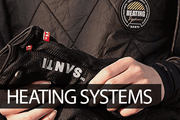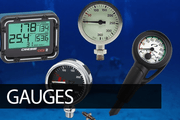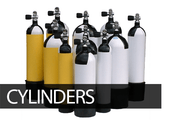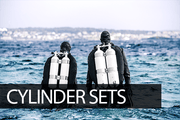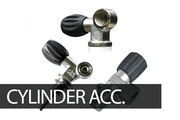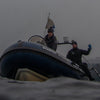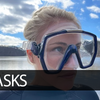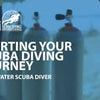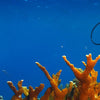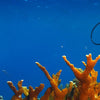Renting Equipment On Holiday

You’ve got the training. You’ve got the will. You’ve got the trip booked.
You’ve become accustomed to the gear you use at your local diving sites. For whatever reason you can’t or don’t want to bring your own diving kit with you. This may raise a few questions: Is it safe to rent? What am I looking for? How can I be sure I’ve been given appropriate gear?
We will try to answer these questions for you.
Safety, it should be foremost on our minds when talking about diving in general. Most diving operations will be on top of their kit maintenance. The last thing they want is a malfunction to ruin a guest’s trip. That being said you should apply the mindset we have in our buddy checks, and inspect the rental gear before you use it.
Regulators
For regulators you’ll want to take a close look as they are the most critical piece of kit. Here are some questions you should think about when looking over a rental reg:
- Is it in service? You can ask to see the documentation or the regulators last service. This should be within 1 year.
- Is the mouthpiece firmly attached? Give it a solid tug, it should stay connected easily
- What condition are they in? You can check where the hoses connect to stages, look for corrosion on the metal parts. Also look at the hoses, make sure that they aren’t kinked, ballooning, or splitting in any way.
- How do they breathe? Ask to put them on a cylinder and give them a try. Smell the air, if it smells of anything other than seawater bring it up with the provider as this could be a sign of a problem with their compressor. If it seems difficult to draw air, or the regulator begins to freeflow, the regulator might need an adjustment.
Masks
Maintaining vision while underwater is extremely important, so is being comfortable diving. Make sure any mask provided fits well to start. Place the mask on your face without using the strap. Drawn and retain a little breath in through your nose. The mask should suction on to your face and not slide off. The lenses should not make any excessive contact with your cheeks or forehead. You should inspect the strap and make certain it doesn’t have any breaks or tears. Also make sure that the skirting is securely attached to the frame.
If you require vision corrected mask lenses contact the rental agency BEFORE you go with your prescription to see if they can provide a mask with the appropriate level of vision correction. In this case, bringing your own mask with you is ideal as many dive centers will either not stock vision corrected lenses, or only have them in limited supply.
BCD
To inspect a BCD make sure that all the clips, releases, velcro, and straps are intact and functional. Both orally and power inflate the BCD while connected to a cylinder and check to see that it holds air without leaking. Check that all the dump valve are secure and let air out when activated.
Wet Suits
Having a quality fitting suit while diving can mean the difference between a great dive and a chilly uncomfortable one.
When inspecting a wetsuit fit is very important. You need to make sure a suit isn’t too large as water ingress can make even the thickest suit quite chilly. On the flip side a suit that is too tight might restrict your movement or place undue pressure on your neck. As far as condition is concerned, take a look at the seams to see if they are coming apart. Also look or for wear at potential impact points, knees, elbows, and around the wrists and ankles. Take a look at the zips, make sure they move freely and seal appropriately.
Fins
A poor fitting fin can lead to chafing, a reduction in propulsion, or even a loss of the fin itself!
The blade of the find should be intact without any splits or cracks. The foot pocket should be of sufficient size for your foot without excessive squeezing. A fin that is too tight might not be trouble at first, but could lead to cramping by the end of a dive.
For full foot fins make sure there aren’t any tears in the foot pocket. It should hug the back of your heel without sliding as sliding can lead to chafing and blisters. Consider wearing a pair of socks to compensate for a fin that is only slightly too large.
For open heel fins check that the straps are in good shape. If the have any mechanical parts (clasps, snaps, tighteners) make sure they are secure and fully functional.
Computers
If you are going to be renting a dive computer there are a few things you want to look at before getting in the water. Firstly, you’ll want to familiarize yourself with its operation. Go through its menus and functions. Make sure it is displaying any errors or showing a “battery low” message. You need to make sure that it is set for the gas you are diving. If the previous renter had it set to nitrox, and you are diving on air you’ll want to make sure that adjust it for how you are diving.
Also important is to check when it was last used. Computer use algorithms to determine your no decompression time. For example: if person “A” rents a computer for a few long, deep morning dives, it logs their time and calculates how long they can dive on a subsequent dive. Person “B” comes along and rents a computer for an afternoon dive. If the shop gives them the same computer as “A” they might be surprised mid dive when their computer shows a very short no decompression time. This situation should not occur, but if you take a moment to check, it should be a non-issue.
Cylinders
Cylinders vary around the world depending on what is locally available. What you are looking for in particular is the hydrostatic test date. The hydrostatic test should be completed every 5 years. There should be a stamp and a label displaying that date. If a cylinder is out of test it is not considered safe to dive. Also, basic common sense goes a long way. Look for corrosion, check pressure, and be certain the valve has an intact o-ring.
Weights
There isn’t much to check on weights other than that you have enough. It is worth noting that you will need more if you are headed to salt water and are accustomed to diving fresh. If you are using a weight belt you’ll want to make sure the weight you get aren’t dented to the point of being unable to thread them onto a belt. The best practice when diving in a new environment or set-up is to perform a weight check on the surface before you dive.
If you have any questions please contact me in the shop via phone on 0330 223 4140 or just pop in for some friendly travel advice, all our staff members have dived and taught all over the world and we've build up a vast network of good places to go, and bad places to avoid.
Pete Nunez
-
Posted in
Blog Post, Equipment Rental On Holiday

